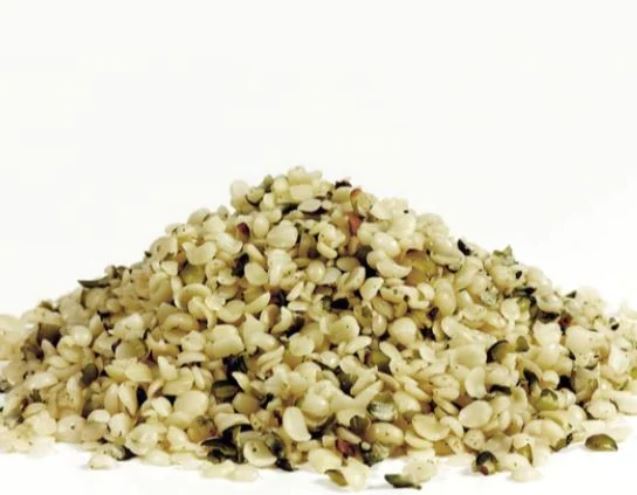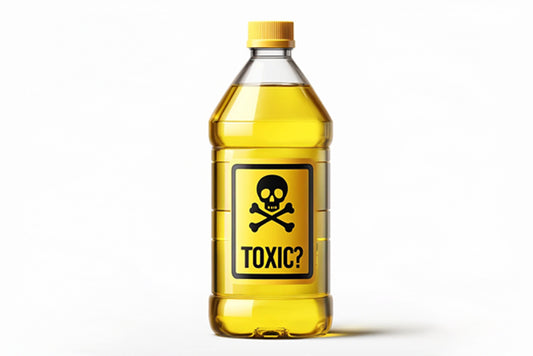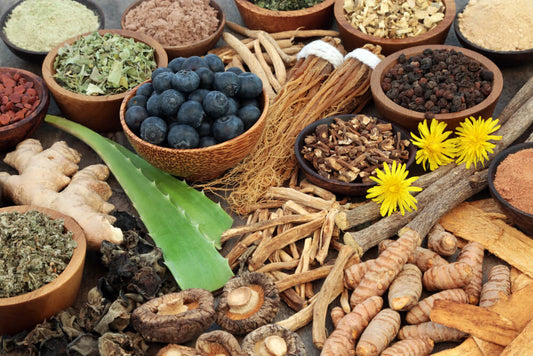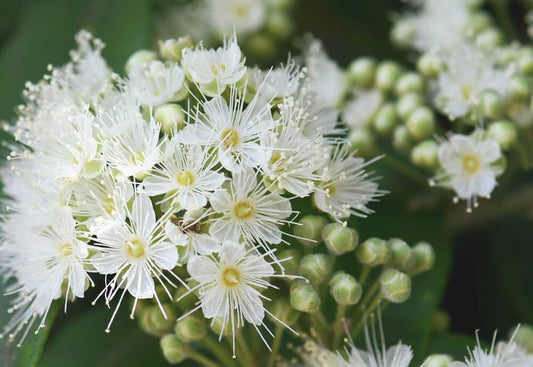
What are Hemp Seeds and Why are they a Superfood?
In the last 4 or 5 years, you’ve probably started to notice hemp being mentioned more and more – particularly in relation to hemp-containing foods.
That’s because, in late 2017, the sale and consumption of hemp foods was legalised in Australia.
The most common hemp foods out there are hemp seeds, hemp oil and hemp flour, though there are loads of others, including packaged food that contain hemp as well.
Today, we want to give you a bit of insight into the world of hemp, particularly hemp seeds, which are easily one of the best kept nutritional secrets out there.
So, let’s find out why these super seeds supersede the other super seeds!
What are hemp seeds?
Let’s get one thing out of the way, we call them seeds, however, hemp seeds are technically a nut.
They are part of the hemp plant. And yes, we’ll address the elephant in the room – the hemp plant is the Cannabis Sativa plant, which the same plant that marijuana comes from.
However, hemp seeds contain little to no tetrahydrocannabinol (THC), which is the psychoactive compound that is found in marijuana.
Sometimes referred to as hemp hearts, hemp seeds can be eaten raw, cooked, or toasted and have been used for centuries all over the world to treat a number of different health conditions.
The hemp plant is native to Asia, and records mentioning it date back over 10,000 years. While the full extent of their nutritional benefits may not have been understood back then, it’s safe to say that our ancestors where onto something.
So, what’s so special about hemp seeds?
Why are hemp seeds considered a superfood?
For a food to be considered super, it needs to contain a very high nutritional value.
Usually, they will be not only nutrient dense and contain high volumes of minerals, vitamins, and antioxidants, but also have very few calories. Essentially, a superfood should give you more bang for your buck.
When it comes to hemp seeds, the old saying, “good things come in small packages” could not be more accurate.
Hemp seeds are a nutritional powerhouse that contain vitamins, minerals, antioxidants, fatty acids, and amino acids.
They are a good source of B-vitamins, iron, manganese, magnesium, and zinc. They are also a great source of antioxidants like flavonoids, tocopherols, and phytosterols, which help to fight against free radical cells in the body.
Hemp seeds have an impressive balance of Omega 3 and Omega 6 fatty acids – fatty acids are important for our bodily functions and very important because the body cannot actually produce the essential fatty acids. When we try to consume these omega fatty acids, we often get more Omega 6s than Omega 3s, so the fact that hemp seeds contain an almost perfect balance of these, is great.
There are also high levels of fibre in hemp seeds, which helps to not only keep us regular, but can reduce the appetite and promote the growth of the good kind of gut flora.
Perhaps the most impressive nutritional component of hemp seeds is their amino acid levels. Amino acids are the building blocks of protein, which is vital for our bodies many different functions. There are 20 kinds of amino acids, and 9 of which that are considered essential, as our bodies cannot make them. This means that hemp seeds are a complete source of protein, and one of the few complete protein sources that are plant based.

What are the health benefits of eating hemp seeds?
We’d be here all day if we list all of the associated health benefits of hemp seeds, so here are only some of them!
· Anti-inflammatory properties
Omega-3 and Omega -6 fatty acids are believed to have anti-inflammatory effects when consumed in healthy amounts.
While inflammation is the body’s natural reaction to stress or damage, when it goes on for too long, it can become chronic inflammation, which can lead to other illnesses, including heart-related conditions.
· Promotes good digestion
As many of us know, fibre is an essential part of the diet – and hemp seeds contain great levels of both soluble and insoluble fibre.
You need soluble fibre as it forms in your gut and acts a nutrient source for digestive bacteria – the good kind of bacteria – which helps to keep things moving in the body and can also help to control your blood sugar levels.
Insoluble fibre is essential for you to be able to expel waste out of your body. Basically, it helps to attract water to your stool, which makes it softer and easier to pass – reducing strain on your bowel.
· Supports cell function and protects them
We need our cells to function properly in order to do anything really – particularly protein and fatty acids. With the amazing levels of both fatty acids and protein in hemp seeds, when you add it to your diet, you’re giving your cells the nutritional compounds they need to be able to continue to function.
On top of this, hemp seeds also contain antioxidants, which protect your healthy cells from free radical molecules that can cause significant damage and illness.
· Improves muscle growth, recovery, and repair
There’s a reason protein is so popular amongst the body builders and gym-goers of the world. It’s vital in the repair and growth of muscle fibre and tissue, which means not only can you get the muscle gains you’re after, but you’re also going to be able to recover much faster.
As we mentioned earlier, hemp seeds contain all amino acids, including the essential 9 that we can’t make on our own. When you eat a protein rich item, like a hemp seed, your body breaks it down into the amino acids, and uses these to grow new muscle fibres or repair damage.
· Low allergy and vegan friendly
As hemp seeds are entirely plant-based, and such a great source of protein, they are an amazing dietary addition for someone who is vegetarian or vegan. It can be difficult to find plant-based sources of protein, particularly a complete source of protein like hemp seeds.
Hemp seeds don’t contain any soy, dairy, or gluten either, which can make them a great option for people who experience food related allergies and intolerances.
Who can eat hemp seeds?
Hemp seeds can be consumed by anyone, though if you are or may be pregnant, it is a good idea to discuss whether you should add them to your diet with your GP, though in most instances, it is safe to do so.
They usually contain no or low levels of the cannabis plant’s active ingredient, THC, so you won’t get “high” if you eat them.
And as we mentioned before, if you are vegetarian, vegan, or suffer form food intolerances, they can be a great option!
What do they taste like and how can I use them?
Hemp seeds have a somewhat creamy and nutty flavour that can be likened to pine nuts or sesame seeds.
They can be eaten raw, cooked, roasted, toasted, used to make oil and even milk.
If you don’t want to get to complicated with your new dietary addition, you can sprinkle them on just about anything, like muesli, yoghurt, and cereal.
Some of the other ways you can use them, include:
- smoothies or drinks
- salad dressings
- pasta
- baked vegetables
- added to baked goods
You can also use them whole or ground. As their taste is quite light and simple, there is a high chance you won’t even notice them when you add them to your favourite dishes.

Where can I buy hemp seeds?
If you’re thinking about adding this protein rich food source to your diet, then you’re in the right place.
We offer a variety of hemp-based products, including hemp seeds. You can buy them in packages of all sizes and along with our entire range of superfoods products, we ship them wherever you need us to in Australia.
Just to make life a little easier, we also offer flexible payment options, like AfterPay and ZipPay. So, if you’re looking to add some hemp seeds to your pantry, you know what to do!













